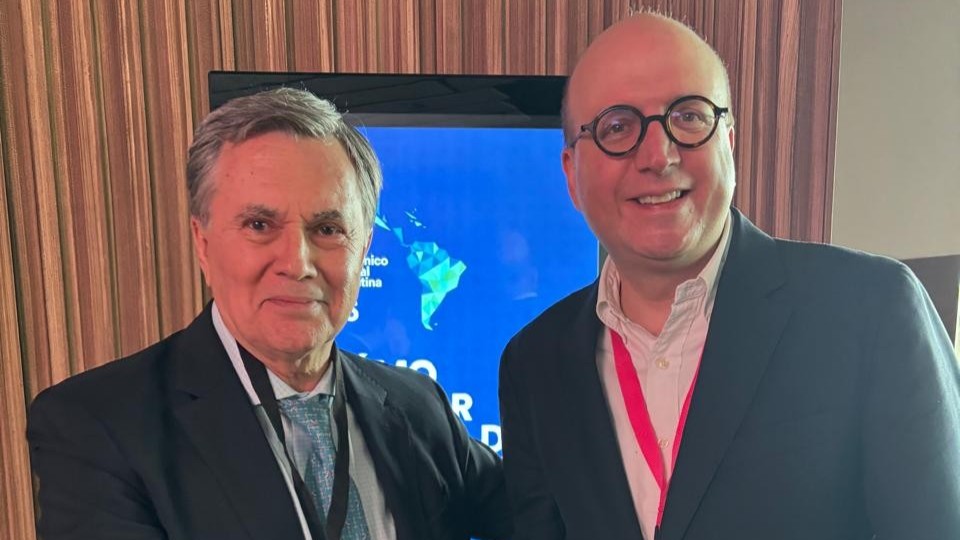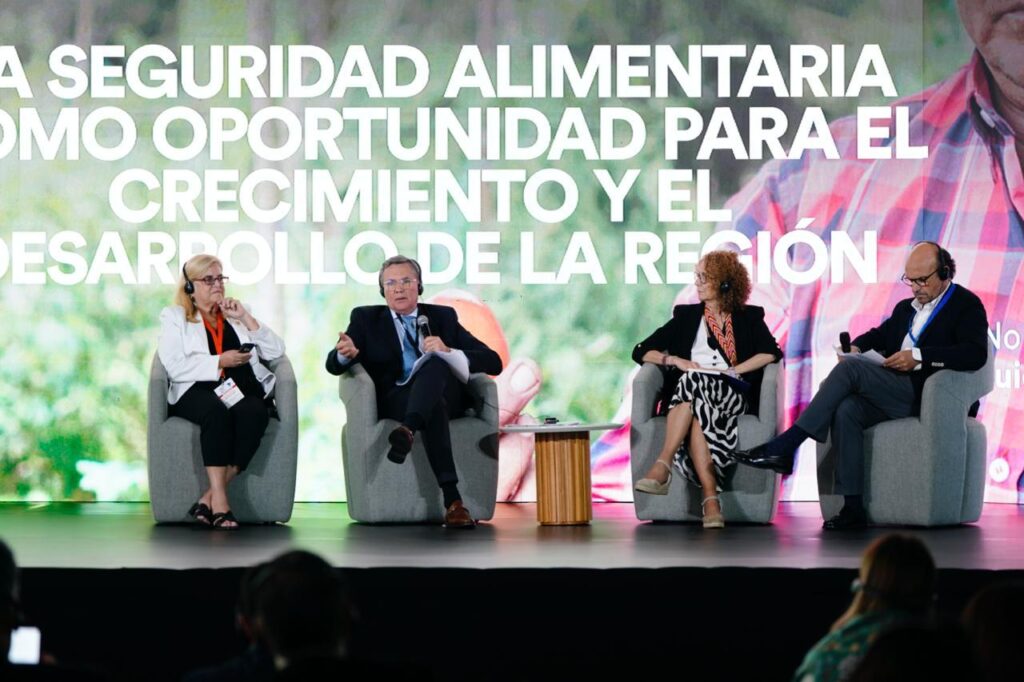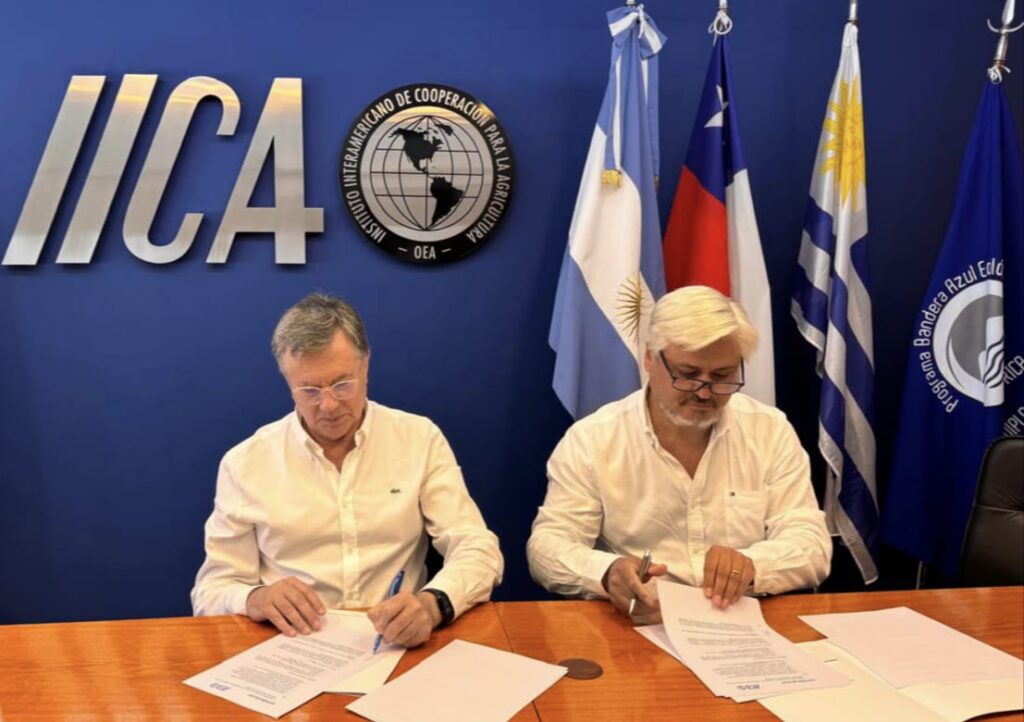La iniciativa tiene como objetivo contribuir a la salud de los suelos brasileños, promover buenas prácticas de manejo de la tierra e incentivos para transformar los sistemas agrícolas en ecosistemas que acumulen más carbono en los suelos, recuperando así la calidad de un recurso natural imprescindible para garantizar la producción sustentable de alimentos.
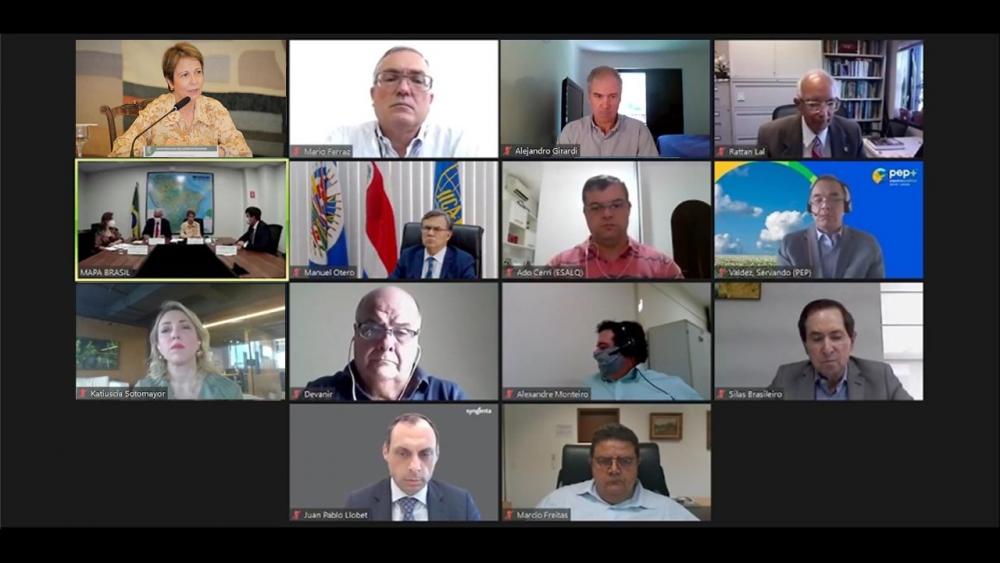
Brasilia, 24 de noviembre, 2021 (IICA). El programa “Suelos Vivos de las Américas” impulsado por el Instituto Interamericano de Cooperación para la Agricultura (IICA) y el laureado científico y director del Centro de Manejo y Secuestro de Carbono (C-MASC) de la Universidad Estatal de Ohio, Rattan Lal, fue lanzado oficialmente en Brasil, en un acto que contó con la participación de la Ministra de Agricultura del país sudamericano, Tereza Cristina.
La iniciativa tiene como objetivo contribuir a la salud de los suelos brasileños, promover buenas prácticas de manejo de la tierra e incentivos para transformar los sistemas agrícolas en ecosistemas que acumulen más carbono en los suelos, recuperando así la calidad de un recurso natural imprescindible para garantizar la producción sustentable de alimentos.
El lanzamiento de la iniciativa contó con la participación, además de la ministra brasileña de Agricultura, Ganadería y Abastecimiento (MAPA), del Secretario de Innovación, Desarrollo Rural y Riego del MAPA, Fernando Camargo, del Premio Mundial de la Alimentación 2020 y Embajador de Buena Voluntad del IICA, Rattan Lal, y el Director General del Instituto, Manuel Otero.
También participaron el Gerente de Desarrollo Técnico de la Cooperativa Regional de Caficultores COOXUPÉ, Mário Ferraz de Araújo; el presidente del Consejo Nacional del Café, Silas Brasileiro; el presidente de la Organización de Cooperativas Brasileñas (OBS), Márcio Lopes de Freitas; el Director de Agricultura de Pepsico, Servando Valdez; el Director de Asuntos Corporativos y Sostenibilidad de Bayer Crop Science en América Latina, Alejandro Girardi; y el Director General para América Latina de Syngenta, Juan Pablo Llobet.
“Suelos vivos de las Américas” es un programa que busca ser puente entre la ciencia, las políticas públicas para el trabajo de restauración y protección de los suelos en las Américas, cuya degradación amenaza la posición de América Latina y el Caribe (ALC) como garante de la seguridad alimentaria global.
La iniciativa está diseñada para mejorar el bienestar rural, la productividad y la seguridad alimentaria respetando los límites del medio ambiente y haciendo un uso racional de los recursos naturales.
“La agricultura de Brasil se basa en la ciencia y para esto nosotros tenemos que construir y promover asociaciones que nos permitan trabajar con el sector privado, la academia, organismos internacionales, la sociedad civil y otras entidades. Estas alianzas para la conservación de uno de los recursos más importantes que tenemos como el suelo, es clave para acelerar los esfuerzos para nuestra vida agrícola”, afirmó la ministra Tereza Cristina.
La titular del MAPA ahondó en que Brasil ha sido un país pionero en el “desarrollo agrícola y pecuario con cero emisiones”.
En ese sentido, indicó, reseñando el Plan brasileño para una producción agropecuaria de bajas emisiones de carbono (ABC plus), puesto en marcha en 2010 y que se extenderá hasta el 2030, que incluye objetivos ambiciosos como la rehabilitación de 15 millones de hectáreas de pastizales degradados y el aumento del área bajo el régimen de labranza cero de 25 millones a 33 millones de hectáreas. También, pretende reducir las emisiones de gases de efecto invernadero (GEI) en 160 millones de toneladas de CO2 equivalente al año.
“Hemos trabajado con diferentes centros de investigación demostrando que lo productores brasileños pueden desarrollar modelos de producción sin la contaminación de carbono, el ABC plus ha trabajado en 200 mil hectáreas esos sistemas integrados con las tecnologías que han ayudado a implementar la agricultura sostenible en Brasil, pero eso no es suficiente, podemos mejorar”, acotó.
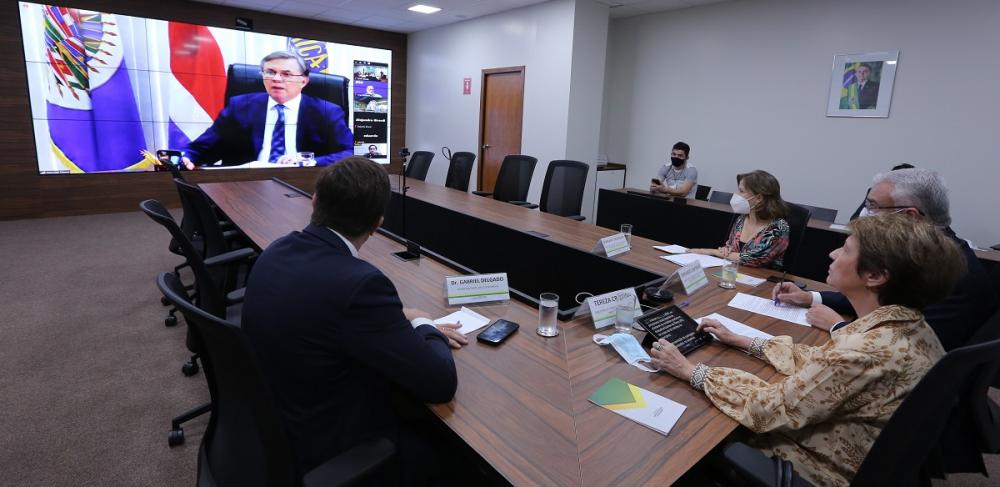
“Queremos tener estos suelos saludables y aumentar la productividad de todos los agricultores que ya están consolidados y tratar de no dedicar más áreas para el sector productivo”, complementó Tereza Cristina, quien también hizo énfasis a un programa nacional que tiene Brasil para la conservación de las cuencas hídricas, el agua y los suelos, esfuerzos a los que la iniciativa de “Suelos Vivos de las Américas” se une y puede complementar.
En el evento de lanzamiento Rattan Lal dio una charla magistral sobre la situación de los suelos en ALC y los desafíos que tiene la región en esta materia como lo son, entre otros, la producción sensible a los alimentos y nutrientes, mejorar la calidad del agua y del aire, incorporar el concepto de Una Salud, que une salud animal, vegetal y humana; mejorar la salud de los suelos, impulsar la agricultura urbana e incrementar los beneficios a los agricultores con una monetización de sus esfuerzos en sustentabilidad.
“El objetivo es que los suelos se conviertan en un sumidero de carbono y debemos aprovecharlo para mitigar el cambio climático. Reducir emisiones y mejorar la productividad es la meta para poder manejar la agricultura. Las emisiones de GEI representan un 42% de las emisiones generales en la región y el uso general del sector de suelo es solamente de un 18%, incorporar el carbono de vuelta es importante”, explicó Lal.
La máxima autoridad global en ciencias del suelo añadió que las prácticas para la conservación del suelo vienen cambiando en la región, sin embargo, aún hay grandes diferencias entre países, por lo que es primordial emplear prácticas agronómicas que fueron resaltadas en la Cumbre sobre la transformación de los Sistemas Alimentarios, organizada por la ONU en el mes de setiembre.
“Manejar y restablecer los suelos, recarbonizar los suelos y la vegetación, mejorar la calidad del agua y su disponibilidad, adaptar prácticas para reducir las emisiones negativas, reducir el uso de químicos, utilizar enmiendas orgánicas en lo posible, fomentar la economía biocircular, apoyar el concepto de una sola salud, utilizar la innovación digital como la agricultura de precisión y premiar a los agricultores por sus trabajos en la agricultura mientras que a la vez se fomenta la educación a nivel de escuela primaria es fundamental”, indicó.
Lal resaltó además el programa ABC plus de Brasil a la que catalogó como una nación líder y exitosa en el manejo de este tema. “En ABC entre 2010 y 2020 restablecieron 15 millones de hectáreas, integraron agricultura y ganadería en 4 millones de hectáreas, incrementaron la fijación de nitrógeno, también en casi 5 millones de hectáreas redujeron la deforestación y utilizaron estiércol verde para fertilizar 4 millones de hectáreas, básicamente ha habido créditos para los agricultores en casi USD 1000 millones y se han secuestrado 170 millones de kilos de carbono en esta sección”, dijo.
Por su parte el Director General del IICA reafirmó el compromiso del organismo en promover la conservación de suelos en ALC, en “donde aproximadamente en el 40% de los suelos hay cierto tipo de degradación”, para así transformar esa realidad y que esto se traduzca en el bienestar de los pobladores de las zonas rurales y mitigar el cambio climático.
“Este programa de Suelos Vivos ayudará a tener ese impacto y estamos para servir con la red y estructura del IICA, para poder poner en práctica los conocimientos y recuperar los suelos que representan un bien único, un activo único en donde nosotros plantamos nuestros cultivos”, afirmó Manuel Otero.
Juan Pablo Llobet, de Syngenta, expresó que para esta compañía es un orgullo “ser parte de esta iniciativa alineada a los objetivos de la empresa”, y apuntó que junto al IICA han venido laborando “en programas de capacitación para ALC, puesto que queremos ampliar el trabajo de Suelos Vivos de las Américas y el C-MASC”.
“Como líderes en el segmento agrícola debemos hacer frente a estos retos en cambio climático y aprovechar nuestro potencial para revertir el problema, tratar de convertir la degradación de los suelos, proteger el medio ambiente y tener mejor producción”, aseguró.
En esa misma línea, Alejandro Girardi, de Bayer Crop Science, resaltó la relevancia para ellos de “ser parte de este proceso desde el principio, en el que el IICA ha sido clave para el desarrollo, y también el liderazgo del doctor Lal”.
“Es una oportunidad muy bien alineada en la idea que tenemos nosotros: salud para todos y hambre para nadie. El sector agrícola tiene un papel muy importante para desempeñar, la innovación es uno de los pilares estratégicos, la transformación y la sostenibilidad, tenemos la intención de ayudar a los productores para que reduzcan el 30% del impacto ambiental en la cobertura de carbono y llegar a 100 millones de pequeños agricultores que han probado tener resiliencia y en este sentido el suelo es clave”, completó.
A su vez, Servando Valdez, de Pepsico, indicó que “estamos entusiasmados y comprometidos de lo que podamos hacer de manera tangible con nuestros agricultores y contribuir en Brasil y toda Latinoamérica con la salud de los suelos”.
Más información:
Gerencia de Comunicación Institucional
comunicacion.institucional@iica.int
